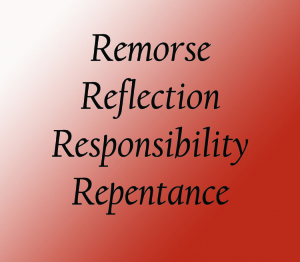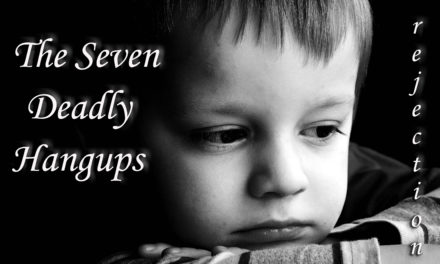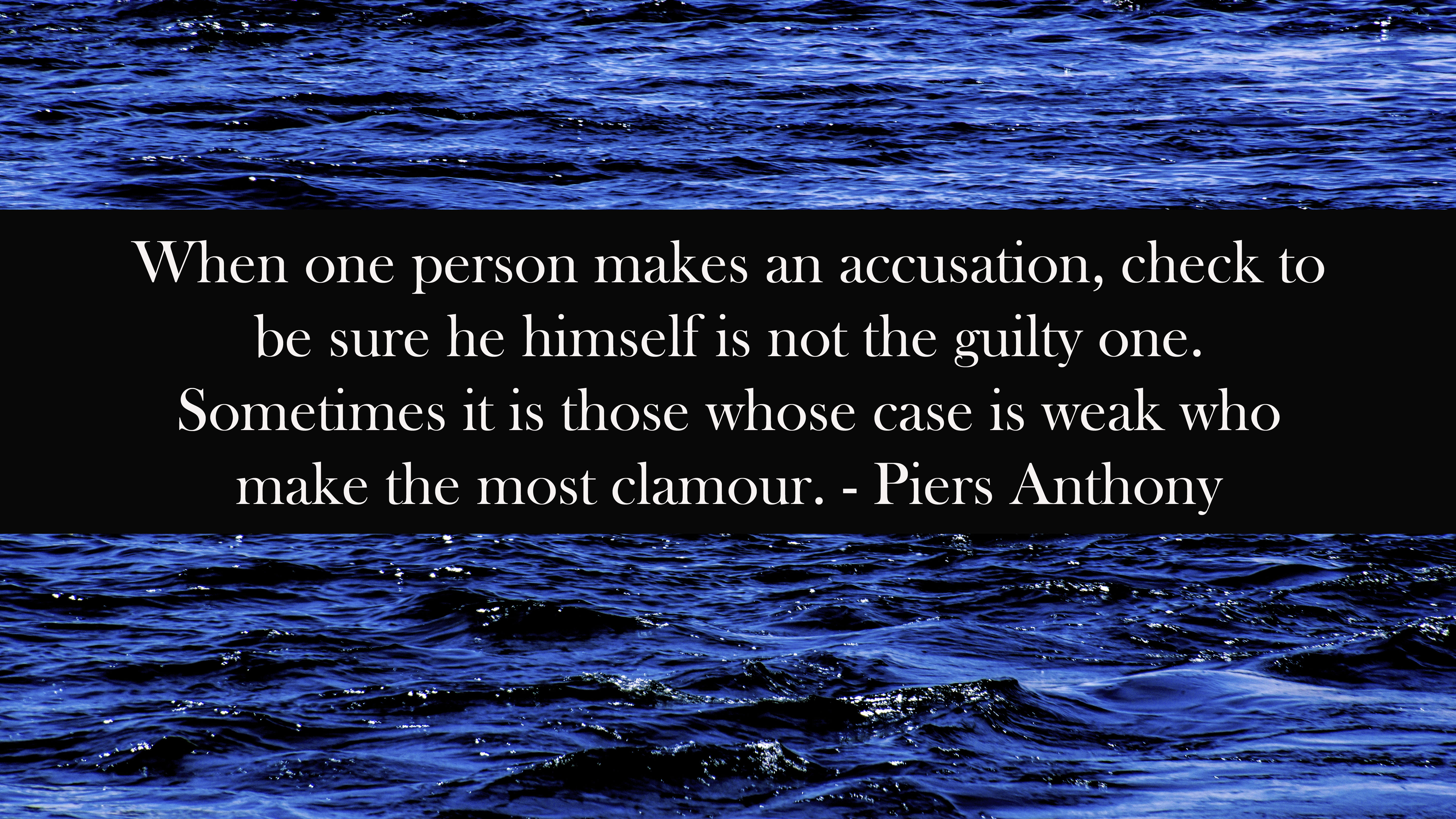 Often in our lives we are faced with people who are harmful, plowing through the lives of others like freight trains that have jumped the tracks. We can break these individuals down into two groups — the people who feel remorseful when they see the pain they cause and those who don’t. As there is no use whatsoever in talking about the second group (because they don’t care and therefore will not change), I am going to focus on the first – using King Saul as an example.
Often in our lives we are faced with people who are harmful, plowing through the lives of others like freight trains that have jumped the tracks. We can break these individuals down into two groups — the people who feel remorseful when they see the pain they cause and those who don’t. As there is no use whatsoever in talking about the second group (because they don’t care and therefore will not change), I am going to focus on the first – using King Saul as an example.
.
As we read through the accounts in I Samuel, we see that Saul is a very tormented individual – literally. God sends an evil spirit to vex him and Saul ends up struggling with it for the rest of his life instead of repenting and turning his life around. As we know, this is the point where David enters into the picture, having been brought to the palace in order to play music to soothe Saul by sending the evil spirit away for a time. Unfortunately, jealousy and paranoia get the best of Saul and he returns David’s service with violence. Saul throws spears at David; Saul conspires to have David killed in battle under the pretext of securing a dowry, and he even sends soldiers to his bedroom at night in an attempt to kill him. David escapes and spends years living in the wilderness of Israel, hiding in caves as Saul hunts him.
.
Twice during this time, David has the opportunity to kill Saul but he instead uses the opportunity to show Saul that he can be trusted. On both these occasions we see that Saul is grieved and filled with remorse when he sees that he has wronged David. But what exactly does remorse amount to?
.
Saul felt bad, and he briefly remembered David as a son, his loyal servant. He sees that the effects of his pursuit have been harmful, he feels guilty, and he goes home. Remorse is good as it shows the humanity of Saul, his ability to perceive that he has harmed someone else, but Saul never seems to reach the next step. You see, remorse can come from a place of empathy or it can come from a place of self-centeredness. There is a big difference between feeling bad for causing someone else pain, and simply feeling bad because we don’t like that the results of our actions have been negative. I think that Saul fell into the second category.
.
When we have done harm and feel badly, there are two paths we can take. The first is to reflect upon our actions and question them, and the second is to refuse to question our actions while simply regretting the results. For example, let’s pretend that I always speak my mind and I hurt you. I can either question whether or not I have the right to say whatever pops into my mind, and really analyze whether I am acting in a destructive, harmful and sinful way, or, I can simply regret that you were hurt by what I said and go on as though I haven’t done anything wrong, feeling badly that you feel badly, but under the delusion that I am justified. I submit that this is what Saul did, that he never took any time to reflect on whether or not his actions were evil. He said the right words, and then went home because he felt badly, but as we see he started up the pursuit again as though nothing had ever happened.
.
But perhaps he did reflect on his actions, which might have been why he went home. It is possible. Upon reflection, one has to make the next choice; do they accept responsibility? Responsibility says, “This poor guy, I have been chasing him for years, that’s on me. I chucked the spear at him, I commanded the soldiers to go kill him in the night, I have led the armies against him. No one else was responsible, it was me and I was wrong.” Now, the fact that he continued chasing David shows that he either didn’t reach this phase, or he decided that he was justified – but taking responsibility is meaningless if we have not rightly judged our actions. It is certainly easy to justify our sins towards others, even when they are innocent of evil against us. The human drive towards self-justification is a powerful one. But someone who truly takes responsibility for their actions in a righteous way will follow it up with repentance.
.
Saul spoke the words, but he never showed true repentance until the day he died. He continued to chase a man who was not his enemy, trying to kill him, and all because David was honored by the people. It is really too bad, because we see that God changed Saul’s heart when He made him king. That means that Saul had the opportunity to be a David, to found a great dynasty, to destroy the Amalekites and be a righteous man.
.
Now contrast this with David, who took another man’s wife, got her pregnant, and treacherously had her husband killed. When confronted with very great sins, he showed immediate remorse, he reflected, he accepted responsibility and he repented and never did anything like it again. That’s why David was a man after God’s own heart and Saul was not.
.
This is a lesson for all of us. Do we plunge ahead assuming that we are right and simply regretting that sometimes our methods injure the innocent, as though they are acceptable losses – or do we pause when we have damaged someone and re-evaluate ourselves? If our remorse does not lead to reflection, responsibility and repentance then we will have squandered our new hearts, and risk becoming illegitimate – regardless of whether we are kings or paupers.
.
Why did I place this under the “relational sanity” category? Because not only do we have to rightly judge ourselves in this area, but we also have to recognize that words do not always reflect true repentance. Actions over time reveal the fruit, but words are easy. We must forgive, but we do not need to trust someone who has been doing evil. Nowhere is there a biblical mandate to trust anyone, and not trusting Saul saved David’s life on more than one occasion. David looked at the fruit of Saul, his actions, and refused to trust him. David didn’t turn that mistrust into betrayal or take the opportunity to do evil, but he also wasn’t going to throw that mistrust out the window and act like a fool either. We must be gentle as doves, yes, but also wise as serpents.





















OMGosh you nailed it again girl! TY TY! LOTS of direction and clarification and validation in this one! <3
Hey Shelley! Nice to hear from you 🙂 I pray you have been well!